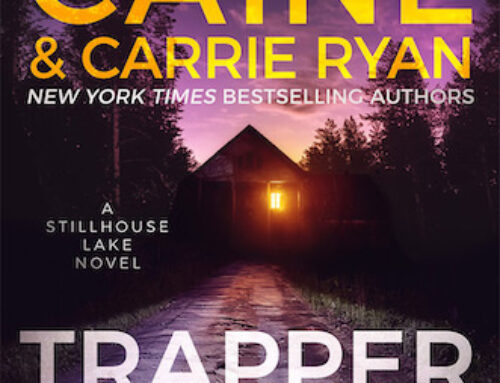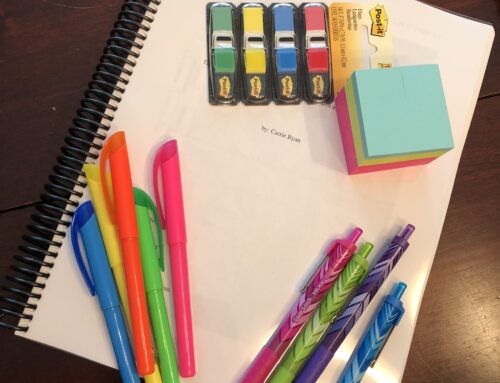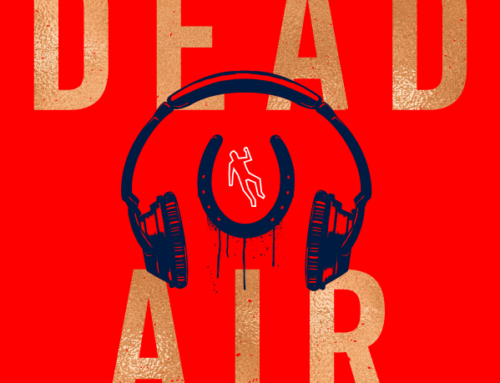I just read this blog post by Kristin Cashore. One of the things I love about Kristin (other than her awesome books and that she graduated from Williams two years before I did, go Ephs!) is that she’s so open and honest about her feelings about writing, including struggles and hurdles, on her blog. Sometimes I wish I were more like her in that way — there’s such an honesty and vulnerability in the way she writes about the process of crafting a book and I love seeing how everything comes together in the end.
I think perhaps for me, I’m not someone who shares vulnerability easily, esp when I’m still not sure I’ll be able to overcome whatever aspect of the process is making me feel vulnerable. Which is a little ironic (and perhaps hypocritical) since one of the reasons I started this blog way back when was so that I and other people could hopefully one day read the process of writing and selling a book as it happened, without looking back through the lens of success.
In fact, one of my favorite posts is one in which
I talk about questioning whether I’d ever actually reach my writing goals — whether my full faith in myself and my dream of being a published author was misplaced. I love reading that post now and knowing that it worked out (and I love reading JP’s motivating response
here). And yet I don’t write posts like that anymore and I’m not entirely certain why.
Perhaps part of it comes from a need to be a little more protective of myself. At one point after The Forest of Hands and Teeth came out a professional reviewer actually combed through my blog archives and found instances of me doubting myself and used them as reasons my book failed or had holes. That felt like a breach of trust to me — I felt like I’d opened myself up and shared my fear and hesitation and suddenly it was turned back on me to prove why I somehow failed. After that I just stopped really opening myself up online as much.
And I think that’s a little unfair — not to me because I still have people I can turn to with my thoughts and ruminations — but to other people out there in this business trying to find their path. Often I feel like authors start to put this “everything is easy” face on so that people don’t prod at the vulnerabilities and somehow this makes people believe that it *is* always easy and then when it’s not easy for them they think something is wrong with them.
The other thing that happens is less welcome: the hopelessness sets in. I can see the book as a whole now, and every single day, I struggle with the voices that are telling me it’s not going to work, it’s going to fail. It isn’t about anything. I’m not good enough to pull all the loose ends together. I’ll get to the climax and realize that it’s a dumb climax. It’s a mess and revisions won’t solve the problems.
And then she goes on to say that she’s learned to remember that the voices don’t control her. Kristin writes:
You acknowledge the voices, but you write anyway. This faith is performative. I believe in this book.
As soon as I read this I thought “Yes! This!” I’m often asked if I’ve learned anything from the books I’ve written and I tend to answer with the oft-repeated phrase that writing a book teaches you how to write *that* book and every book has its own new set of problems. However, there is something I’ve learned: that I can do it.
With the past few books I’ve written I’ve always come to the point when I look around me and think “I’ve broken it.” It’s a feeling of utter helplessness — it’s over. Done. The book can’t be fixed. It is beyond repair. In fact, on Christmas Eve I found myself sobbing to my husband, JP, on the phone while hiding in the guest bathroom at my sister’s house because I could not fix the book I was working on and it was due. I was frozen in panic.
He reminded me that I’d been there before. That I always end up there with my books. And he was right. I’d felt that unbearable helplessness before and I’d found a way to work through it. I’d figured out the character/plot/scene/hole and I’d fixed it and I had to have faith that I could do it again. I just had to keep pushing — keep writing.
This is exactly what I think Kristin was saying when she wrote “This is faith performative.” Not just faith performative, but absolute faith. With no guarantee that I *could* fix the book, only the knowledge that I had in the past, I had to believe I could do it again. I had to have faith and I have to continue having faith.
And just as Kristin sharing her process helped me understand my own, I hope sharing my process helps others. Have faith in yourself and your writing, even the only thing you can hold on to is that faith.





Creepy much? I can't believe a professional reviewer would do that.
It can be hard to open up, especially to the internets, who knows who could be reading your blog.
Also, Kristin Cashore rocks out loud (love love love love Graceling!).
Very interesting post!! When I first found your blog a couple of months ago, the very first thing I did was start reading your old posts. Being able to see that you were once upon a time exactly where I am right now, and you have come so far, inspires me like crazy. How horrible that someone would use your old posts against you! I just don't understand how someone could be so rotten.
That is absolutely unfair for a reviwer to do that! I think it's great when authors are able to be open about the writing process. I think it gives people a whole new perspective on how much work it is! All the doubts and stuff that go along with it are natural feelings!
Fantastic post. Thank you.
Wonderful post Carrie. I needed to hear this!
I think all writers go through this but not all talk about it so openly so thank you for doing that. Also, the reviewer that went back through your posts did something that was extremely unfair to you and not only that but he or she was wrong – your books ARE good and you ARE a success 🙂
Such a great post! This is exactly where I am right now with my current novel. I feel like it's "broken" and that I was crazy to believe I was a talented enough writer to pull off such a complex and beautiful story. Yet, there is somewhat of a deadline looming with RWA National conference at the end of July and a pitch appointment with the agent of my dreams. I'm so scared and frustrated and hopeless. Hearing a NYT Bestseller talk about feeling the same thing gives me hope that I'm not the only one who is scared. I love your books! Thanks for the words of encouragement and for opening yourself up and giving me hope.
That was awful of that "professional" reviewer.
I'm glad that you still opened up about the doubt and everything. I needed to hear that. 😀
Oh, and I e-mailed you that pic from Con Carolinas as well. 😀
~Tyhitia
Thx carrie i needed that today
You rock little sister. Like, seriously. What a great post and a great testament to your original blogging mission.
(Although I'm still chuckling at your use of the word "husband". Just kills me. How long will JP have to withstand my giggles over that?) hahahahahahateeheeeeee!
Thanks for this post, Carrie. I really appreciate it!
Thank you, this post is such a gift. I'm a huge fan of both your and Kristin Cashore's books. As an amateur writer, it is so inspiring to know that you struggle and this isn't easy for anyone.
I'm in the middle of revisions, tearing apart my book and when I look at the work ahead of me in putting it back together, I think, "Am I crazy? Why am I working this hard? No one's making me. No one's paying me."
But your post gives me hope. Thanks!
Thank you for this post. It's so hard to know what is too much sharing and what you need to say in order to stay honest.
We put so much of ourselves into our books it can be seem like overkill to bare our souls in blog posts. You just have to trust your instincts; they're usually right.
Thanks for sharing, Carrie.
😉
This made me very, very happy to read, because you and Kristin Cashore are my two all-time FAVORITE authors.
This is a great post, and I can completely relate
Hi, my first time reading your blog, I actually came to your website looking for the next book (guess I'm going to have to hold myself together until it comes out, and please hurry to get in Australia for us!)
I just wanted to say, that it has helped me to read about the times you have doubted and wondered…
and I just hope you stay as strong as you are, strong enough to keep sharing.
I wouldn't say there's anything professional about a reviewer who would do something like that. Seems more than a little desperate.
Like some of the other comments here, I've found this post (and the one you linked to – thanks for that!) reassuring and encouraging in so many ways. Just wanted to say thank you. 🙂
Hi, hope its OK to contact you here. would love to include your blog on our giveaway blog network: Giveaway Scout (http://www.giveawayscout.com). Have a look and if interested drop us a line on our contact form (http://www.giveawayscout.com/contact/). thanks, Josh
I like your blog !!Thank you. They are really great .
do not miss my goods , they are very beautiful !!
Yves Saint Laurent
Tory Burch
Christian Louboutin
Men's Shoes
Women's Shoes
New Arrivals
I'm the same as you. I hide my doubts because if I let them out they will overgrow like those stupid tiny little toys that expand in water. Yet, I found your brief little foray into uncertainty as a sign that I'm not all alone in the world. Writing is such a solitary task. I thank you for sharing your past post.
Peace, Maureen O'Leary Wanket